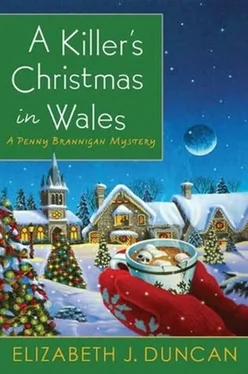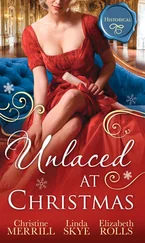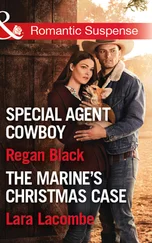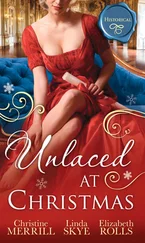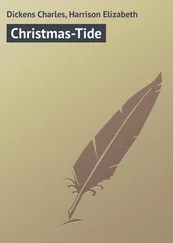She tried to reassure herself for the thousandth time that Saunders had been trapped in the storm over the weekend and today had taken out the money to invest, just as he’d said he would. But the little voice inside her, that she was wishing she’d paid more attention to earlier, would not be silenced. And it was telling her something different.
When the phone rang again, she picked it up eagerly. Oh please be him, she breathed.
“Hello? Is that you, Harry?”
Her shoulders sagged.
“Yes, I figured you were trapped in the storm, so I wasn’t worried about you at all, Florence.” She listened. “Oh, meant to clear up, is it? You’re taking the train. Yes, well, I’ll see you sometime tomorrow then. Thank you for ringing. Must get on. Good-bye, now.”
She replaced the telephone receiver and then immediately headed to the drinks table in the sitting room to do something she had done only once before in her life at ten o’clock in the morning. She poured two fingers of whisky into a glass, hesitated, then added another two. She took a small sip, then a large gulp. A moment later she set the empty glass on the tray and, fueled by a surge of alcohol-laced adrenaline and anger, strode back to the hallway and opened the closet door. She pulled out her warmest coat and scrabbled around in the back of the cupboard to see if she could find her old pair of winter boots. She found one boot, covered in dust with a broken lace, but it would have to do. She dove back in, tossing out pairs of shoes, a lost glove, a long-forgotten dog lead, and a hairbrush, until she found the mate to the boot she held in her hand.
She shook the dust out of them and, hoping no spiders or mice were living inside, put them on. She pulled on a warm hat and let herself out of the house. As she plowed along Rosemary Lane, clamping her hat to her head with one hand, her wind-bitten face was taut with distress.
She wasn’t sure if there was anything to be done, if anything could be done, but she desperately needed to speak to Huw Bowen. As she turned the corner into the town square, she glimpsed a patch of blue sky over the church tower and realized it had finally stopped snowing. Maybe now, she thought, maybe now he’ll be able to get here and everything will be fine. It’ll all have been much ado about nothing.
A half hour later, she left the bank. She took her time walking home, knowing there was nothing more she could do, except wait to see if Saunders, as she was beginning to think of him, would contact her. Her conversation with Huw Bowen had not gone well. There had been no hearty reassurance, no attempt to comfort her, just a hard cold dose of reality. Yes, he’d had his suspicions. Yes, he had tried to talk her out of it. Yes, he had recommended two signatures on the joint account. But it was too late to put that right, the question was what could she do now.
But the worst part had been when she had asked Huw what he thought had happened.
“May I speak frankly?” he had asked, and when she nodded, he had said, “I think he’s gone for good, Evelyn, and he’s taken your money with him.” Along with my self-respect and position in this town, Mrs. Lloyd thought.
“And what’s more,” Huw had added, “I think it’s time we called in the police and I am advising you to do that.”
But why, Mrs. Lloyd had asked. He hadn’t done anything illegal, and besides, she didn’t want the whole town knowing about this.
“That’s exactly how these men operate,” Huw had replied. “They work quickly to build trust and then trick sensible, intelligent women into giving them money, and they count on the fact that their victims, for one reason or another, usually shame and embarrassment, will not go public with it. And it’s that silence that allows them to move on to their next victim. And the one after that.”
But Mrs. Lloyd was not ready to call in the police and told her financial advisor that she wanted to give it another day or two, just in case there was a simple explanation.
But still, hoping against hope that everything might yet turn out all right, in her own mind she feared the worst. And she had another long day, filled with stomach-churning dread, to get through. She needed to talk to someone, someone she could trust.
As she turned into Rosemary Lane, she decided that as soon as she took her coat off, she would call her longtime friend Bunny from the old post office days and see if she was free for lunch tomorrow. Somewhere different, Conwy, maybe. It wasn’t far. And while she didn’t think she’d be in the mood for Christmas shopping, a look round the shops might be nice. She might pop into that kitchen-supply place and buy Florence something for the kitchen as a Christmas present, since she liked cooking and baking so much. Looking forward to a little outing always made things seem brighter, Mrs. Lloyd told herself. Taking charge of the situation was the thing to do. And besides, Bunny would not only understand but, being a practical person, might be able to suggest something. Anything.
But the first call she made when she got home was to Saunders. He didn’t answer, but how could he? The ringer on his mobile phone had been switched off and the device lay at the bottom of a rubbish bin on a platform of the Chester railway station covered with a banana peel, a couple of sandwich wrappers, a dirty nappy, and a half-empty can of ginger ale.
The next morning, as the sun tried valiantly to assert itself through a pale battalion of dense, grey clouds, Penny and Alwynne Gwilt set off on the twenty-minute drive up the valley to Conwy where the Stretch and Sketch Club had been able to change their reservations at a local restaurant for the group’s Christmas lunch. The narrow rural road wound on, bordered on each side by stone fences, hedges, and the occasional cluster of holly bushes bearing bright red berries. Fields, green just a few days ago but now blanketed in snow, sloped away into the distance.
“It’s nice that our two new members were able to come today,” Alynne remarked as she slowed down to take a sharp turn. “Brian and Glynnis.”
“I’ve been meaning to ask you about her,” Penny replied. “I don’t know her very well, but she seems, well, I’m not sure if sad is the right word but down in the dumps.”
“She didn’t used to be like that,” Alwynne replied. “She used to be quite lively and great fun. But I think living with Huw Bowen would take it out of most women. He’s a good man in many ways, I guess, but he can be domineering and demanding. Maybe it’s the banker in him, but everything’s got to be done just so. I think that would be very hard on any woman, living with that day after day. Still, I expect they have no more of the ups and downs of married life than the rest of us.”
“Why did she marry him, do you think?”
Alwynne gave a little shrug and glanced at her companion in the passenger seat. “Why does anyone marry someone? Maybe she thought he was her last chance. She was in her late thirties when they married. She gave up her job-used to be a teacher at the high school.”
She pointed out the window as the battlemented outline of Conwy Castle came into view.
“I’ve seen that view all my life and it never fails to amaze me, the sheer size and strength of it,” said Alwynne. “It gives a whole new meaning to the word intimidating.”
The little car squeezed through the upper gate, the main landward entry into the town and one of only three arched gateways in the well-preserved stone walls that encircled the town. They inched along narrow one-way streets until they reached the restaurant, located in the looming shadow of the great medieval fortress.
Built in the thirteenth century by King Edward I as one of a series of castles across North Wales, Conwy Castle sits in an authoritative position on a rocky outcrop on the banks of the River Conwy, set against the mountains of Snowdonia. Roughly rectangular in shape, with four massive towers along each long side, the castle has no equal for visual impact.
Читать дальше
Конец ознакомительного отрывка
Купить книгу
